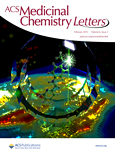 Drug researchers in India have lost their 2013 paper in ACS Medicinal Chemistry Letters because the first author fabricated findings.
Drug researchers in India have lost their 2013 paper in ACS Medicinal Chemistry Letters because the first author fabricated findings.
The article, by a group from the Maharaja Sayajirao University of Baroda, Vadodara, in Gujarat, was attempting to synthesize and screen novel clot-busting drugs; one compound exhibited the same activity as aspirin or warfarin, but without increasing bleeding time.
Sadly, it appears as if this potential medical advance was not to be. Here’s the retraction notice for “Novel 2-Aminobenzamides as Potential Orally Active Antithrombotic Agents”:
The authors retract the article entitled “Novel 2-Aminobenzamides as Potential Orally Active Antithrombotic Agents” published in ACS Medicinal Chemistry Letters, 2013, 4, 32–36 (DOI:10.1021/ml300217f) due to the confirmed scientific misconduct of Mr. Amit Verma. Based on the results of investigation of a committee established by The Head, Pharmacy Department, Faculty of Technology and Engineering, The M. S. University of Baroda, Vadodara, the authors conclude that some of the biological experiments represented in the Letter are not reproducible due to manipulation and/or misrepresentation by Mr. Amit Verma. Therefore, all authors agreed on retraction of this paper.
We emailed the senior author, Mange Yadav, for comment and will update this post if we learn more.
Like Retraction Watch? Consider supporting our growth. You can also follow us on Twitter, like us on Facebook, add us to your RSS reader, and sign up on our homepage for an email every time there’s a new post.
If I was to aggregate fraud, misconduct, plagiarism, etc., and geographically map host countries where fraud/misconduct “hotspots” appear (easily done by the way), one wonders where the biggest international hotspots for scientific fraud and misconduct would appear? Any guesses?
You’d find something like this I suppose: http://news.sciencemag.org/scientific-community/2014/12/study-massive-preprint-archive-hints-geography-plagiarism